Hitler's “Stop Order”. Why German tanks did not crush the British army
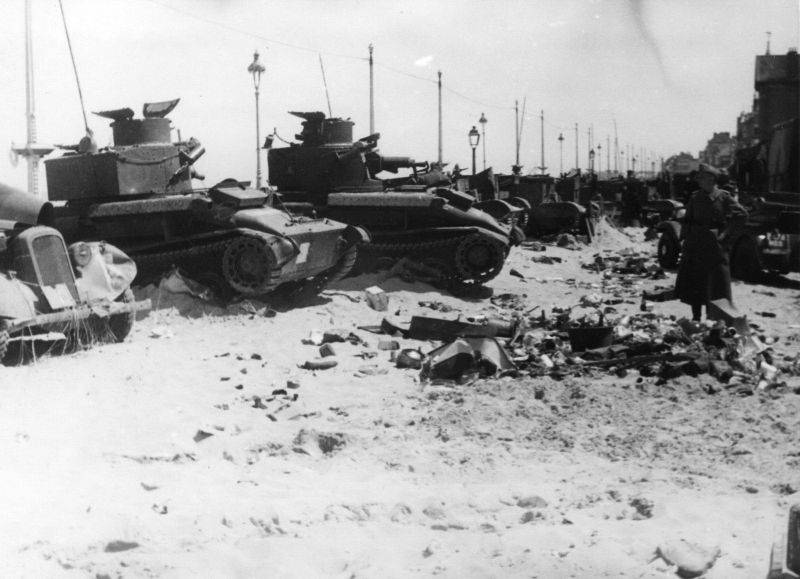
Blitzkrieg in the West. After the German divisions broke through to the sea, about a million French, English, and Belgian soldiers were cut off from the main forces. German Tanks moved along the coast with virtually no resistance and occupied French ports. Guderian could occupy Dunkirk almost without a fight, which led to the complete destruction and capture of the entire enemy group. However, Hitler received an order to stop the offensive. Hitler's “stop order” has become one of the mysteries stories.
The catastrophe of the Allied armies
On May 14, 1940, the Netherlands surrendered. On May 17, the Nazis captured the Belgian capital Brussels. The German Army Group “A” under the command of Rundstedt and the Army Group “B” under the leadership of Leeb surrounded the million-strong group of Anglo-Franco-Belgian forces with a sweeping movement, pressing them to the sea. In the areas of Sedan and Dinan, the Germans immediately crossed the Meuse. When they learned in London that the line of defense on the Meuse was broken and that the French commander-in-chief, Gamelin, had no strategic reserves ready to close the gap and immediately launch a counterattack to break through the blockade, they were shocked.
The tank formations of the 4th German army, easily reflecting the poorly organized counter-attacks of the French, broke through to Saint-Quentin. Kleist’s strike tank group, having crossed the Ardennes and the Meuse, was rapidly advancing through northern France, and on May 20, 1940, reached the English Channel in the region of Abbeville. The Anglo-Franco-Belgian group was blocked in Flanders and pressed to the coast. There were still chances to break through at least part of the troops. The encircled Allied group initially had almost double superiority over the surrounding German forces. It was possible to concentrate combat-ready units and strike southwest, remove part of the group from the environment.
However, the British were already thinking about evacuation and did not want to take risks. And the French were stunned and confused. The French commander, Gamelain, ordered a breakthrough. But at this time, the French government was concerned, how to obscure the catastrophe, to find the extreme. At the most tense moment, Gamelin was removed, and Weygan was placed. The new commander in chief of the French army, General Weygand could not do anything. Moreover, at first he canceled Gamelin’s order to organize counterattacks to save the blocked group. Then, after understanding, he repeated this order. But time was already lost. The position of the allied forces quickly became disastrous. The command and control of the troops was broken, the connection was interrupted. Some divisions still tried to counterattack, scattered and unsuccessfully, without due pressure, others only defended themselves, while others ran to the ports. The troops quickly turned into a crowd of refugees. German aviation bombed and shot the enemy. Allied aviation was almost inactive. Huge crowds of refugees worsened the situation, clogged the roads. Among them were many soldiers who abandoned weapon. They belonged to units that were put to flight during the German breakthrough.
The Allied forces cut off in Flanders and Northern France were located in the triangle of Gravlin, Denin and Ghent. The armies of Rundstedt advanced from the west, and the troops of Leeb from the east. On the night of May 23, the main command of the ground forces ordered Army Groups A and B to continue to compress the encirclement around the enemy. The troops of the 6th Army were to throw enemy forces located in the area of Lille to the coast. The troops of Army Group “A” were to reach the Bethune – St. Omer – Calais line and advance further to the northeast. As a result, the destruction of the enemy group was planned to be carried out by the joint efforts of two army groups advancing from the west and east.
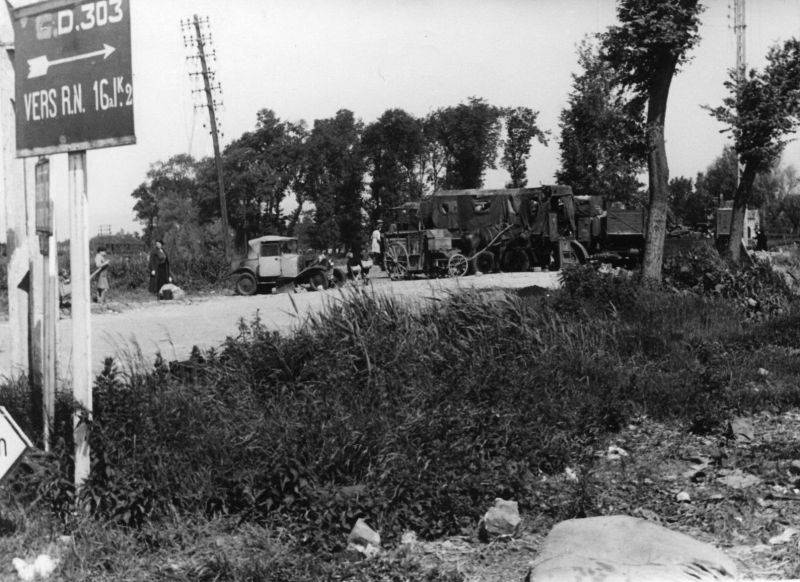
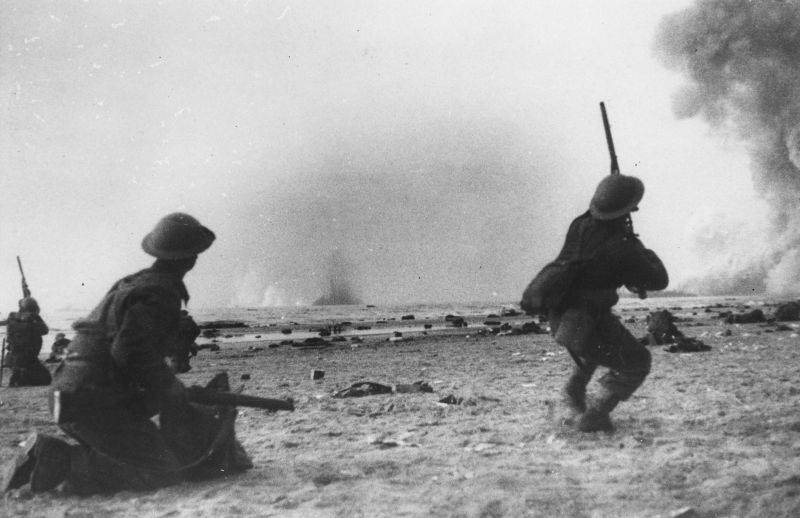
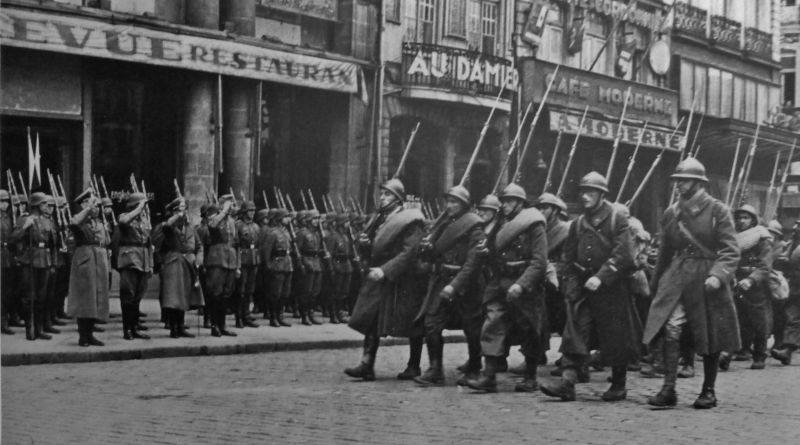
Stop order
There is no doubt that the Allies were threatened with death or surrender. In particular, the 550th Belgian army, having no hope of evacuation, the help of the Allies and the ability to hold defense on the coast for a long time, surrendered on May 28. In London, they understood this and ordered their expeditionary forces under the command of General Gort to immediately evacuate through the strait to the British Isles. The problem was that the British did not have time to evacuate their army if the Germans had not suddenly stopped.
German mobile units advanced rapidly, occupying French ports almost without a fight. On May 22, German troops occupied Boulogne; on May 23, they reached Calais and the near approaches to Dunkirk. The French troops, panicked and completely demoralized, laid down their arms. The British, having effectively left the Belgians to their fate, quickly retreated to Dunkirk, the only remaining port from where it was possible to evacuate to their native island. The British command mobilized almost all boats and vessels, including private ones, to take out the soldiers. But Guderian’s 19th Panzer Corps reached Dunkirk two days earlier than the main British forces. German armored vehicles stood almost in front of a defenseless city. And then an order came to stop the offensive. “We were speechless,” the German general recalled. Guderian believed that German troops were able to destroy the enemy.
The greatest threat to the allies was the mobile formations of the 4th Army, which were supposed to advance from the west. But the commander of Army Group A, Rundstedt, decided to postpone the offensive of the forces of Kleist and Goth until May 25. Arriving at the headquarters of Rundstedt on May 24, Hitler, together with Jodl, agreed with the view that mechanized divisions should be kept at the milestone reached, and infantry should go forward. The corresponding order was received by the 4th Army von Kluge.
As a result, German tanks were suddenly stopped on May 24 already in front of Dunkirk. 20 km from the city, which German tank divisions could overcome in one jerk. As Churchill noted, the British intercepted "an unencrypted German message that the attack on the Dunkirk, Azbrook, Merville line should be stopped." The Allies did not have defense here yet. For two days, the British were able to establish a defense in this direction and organize a large-scale evacuation operation.
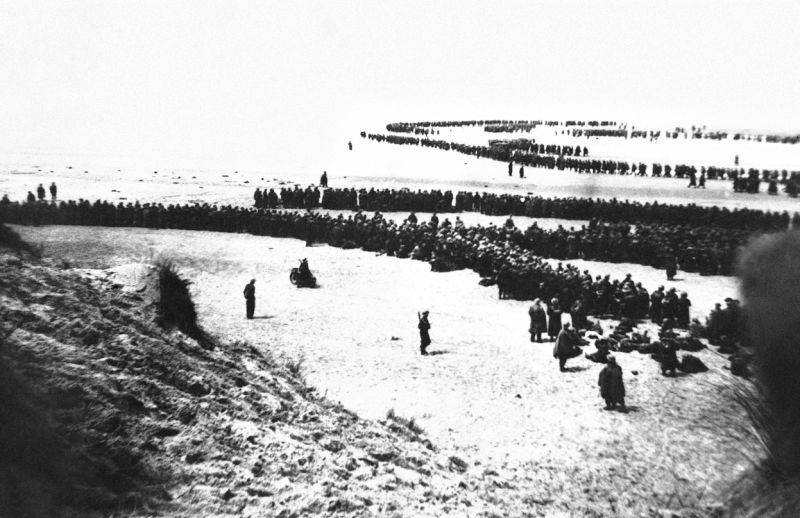
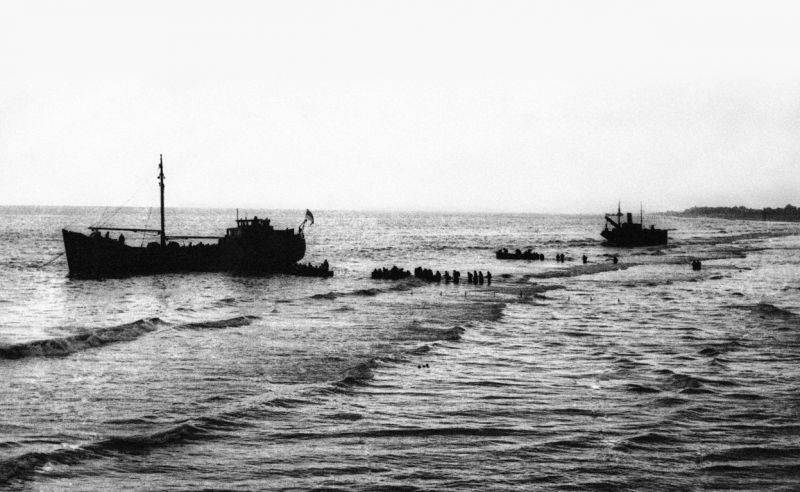
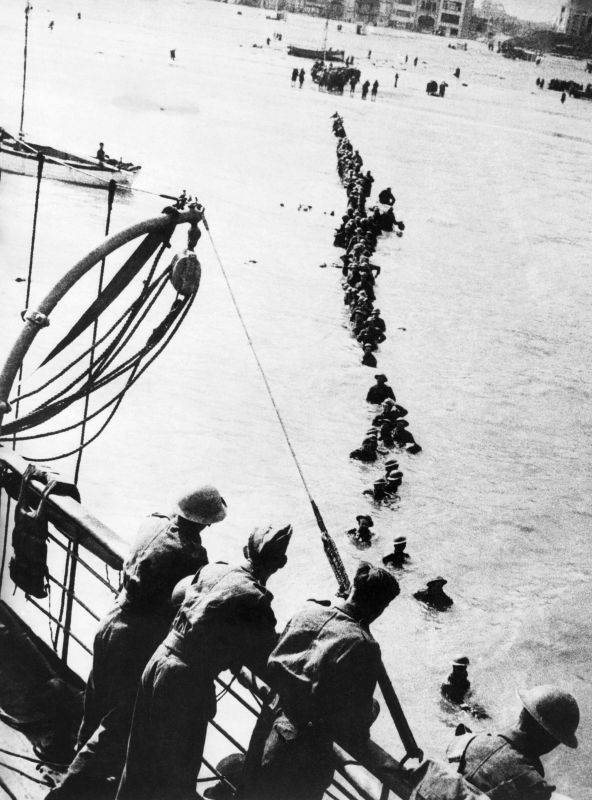
The reasons for the "miracle in Dunkirk"
Researchers highlight the military and political reasons for Hitler's “stop order”. The Führer and the high command could not yet fully believe in the defeat of France, that the French had already laid down and would not rise. The Germans believed that they were still waiting for fierce battles in central and southern France. Hitler and many generals from the high command remembered the year 1914, when the German corps marched on Paris as bravely, but stretched out communications, ran out of steam and could not win the battle on the Marne. The Führer declared: "I will not allow the second Marne."
Hitler and his generals assessed the current situation as a whole correctly. The enemy had to throw strategic reserves into battle, strike from the south into the base of the tank wedge. It was believed that the French army would be able to organize strong counterattacks for the deblockade of the Dunkirk group. France still had the resources and strength for serious resistance. And on the coast, desperate allies could dig in and take the last battle, inflicting brutal losses on the Germans. It is necessary to pull up infantry and artillery, rear. Logic suggested that mobile units must be maintained for future battles. You can not expose tanks on the coast under the attacks of British naval artillery and aircraft. It was obvious that the British would give up all their strength in order to save their only cadre army. An expeditionary army was needed to defend the British Isles.
Strong enemy counterattacks were expected. It seemed that it would be so. On May 21 and 22, the Allies counterattacked in the Arras area. On May 23, the Allies again attacked the right flank of the Kleist group in the Arras area with forces of three British brigades and part of the 3rd French mechanized brigade. The Germans suffered heavy losses in tanks. True, the battlefield remained with the Nazis, they quickly repaired and returned damaged vehicles to service. The Germans decided that it was necessary to regroup mobile units for a new strike and save for new offensive operations in France. Thus, Hitler and the German high command decided to save the tanks "for the battle for France." And in the end she was not there, the French, in fact, were already blown away.
On the other hand, the head of the Luftwaffe Goering promised the Führer that his pilots would manage without tanks. It is necessary to properly bomb the relatively small Dunkirk bridgehead, which is jam-packed with soldiers, refugees and equipment, and the enemy will throw a white flag. There were grounds under these hopes. The allies were not only defeated, but also began to quarrel with each other. The British threw the front, the French and the Belgians pushed around, tried to put them to defend the export of the British. Refugees were driven away from ships. The King of Belgium, Leopold was invited to abandon the army and flee. As a result, the Belgians decided that it was all over, and surrendered.
The political reason is also clear. Hitler wanted to have the preconditions for concluding a peace with England. The Fuhrer wanted to defeat France, to avenge the war of 1914-1918. In England, the Nazi elite saw "brothers" in the Aryan nation and in spirit. It was Britain that began to build the world order that the Nazis dreamed of. With the division of people into a "higher race and" lower ", with genocide and terror of" subhuman ", any resistance, with concentration camps, etc. Therefore, Hitler saw in England not an enemy, but a future partner in a new world order. Therefore, the Fuhrer gave the British a chance to flee from France, even in difficult circumstances and at the cost of serious losses. To then negotiate with the British. Fortunately in Britain there was a strong pro-German party.
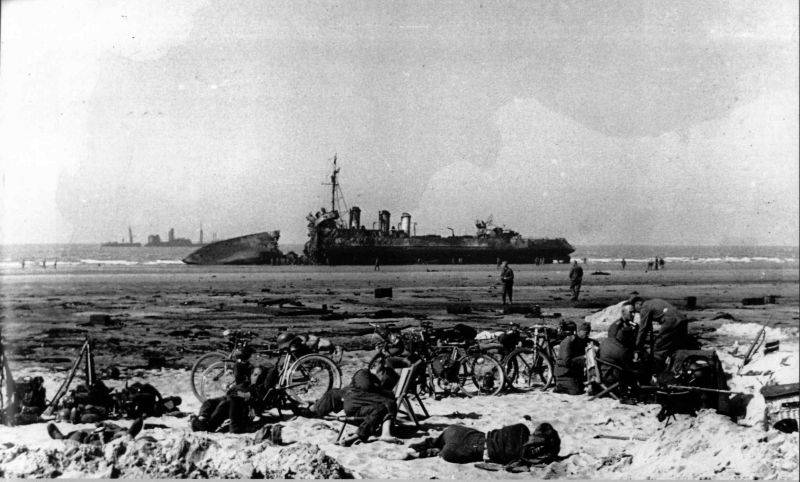
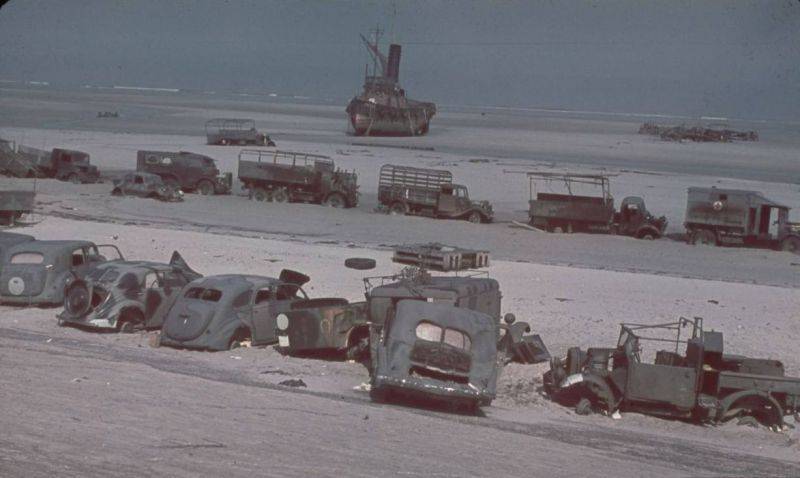
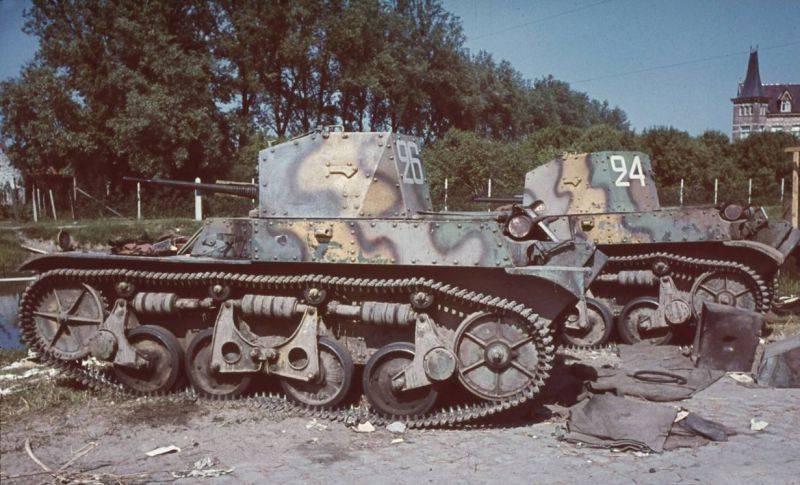
Operation «Dynamo»
On May 25, 1940, the German 6th and 18th armies and two army corps of the 4th army launched an offensive in order to liquidate the enemy group. But the attack on the allied grouping from the east and southeast proceeded very slowly. The forces of one infantry were not enough. Procrastination was dangerous. The enemy could come to his senses and try to seize the initiative. On May 26, Hitler, having understood the situation, canceled the “stop order”. But at the same time, mobile units began to be withdrawn from the battle, they were aiming at Paris. The elimination of the allies pressed to the sea was entrusted to the infantry, artillery and aircraft.
Thus, the ban on the use of armored forces to defeat the Dunkirk group lasted a little over two days. However, the British managed to take advantage of this and slip out of the trap. When German tanks resumed their offensive on May 27, they met strong and well-organized resistance. The French held defenses on the western flank, the British on the eastern. Using a very rough terrain, the Allies prepared more or less solid lines, saturated them with artillery and stubbornly defended themselves, sometimes counterattacking. British aviation actively covered their ground forces and navy.
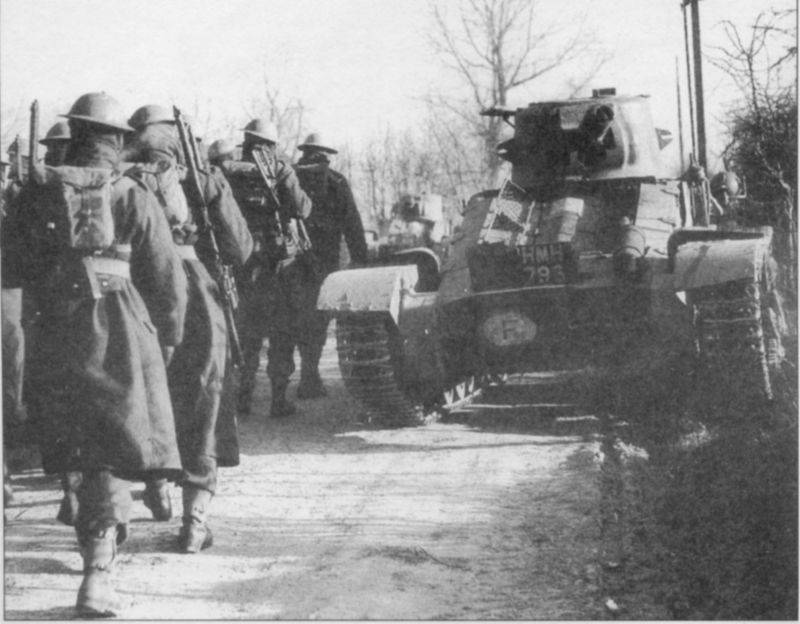
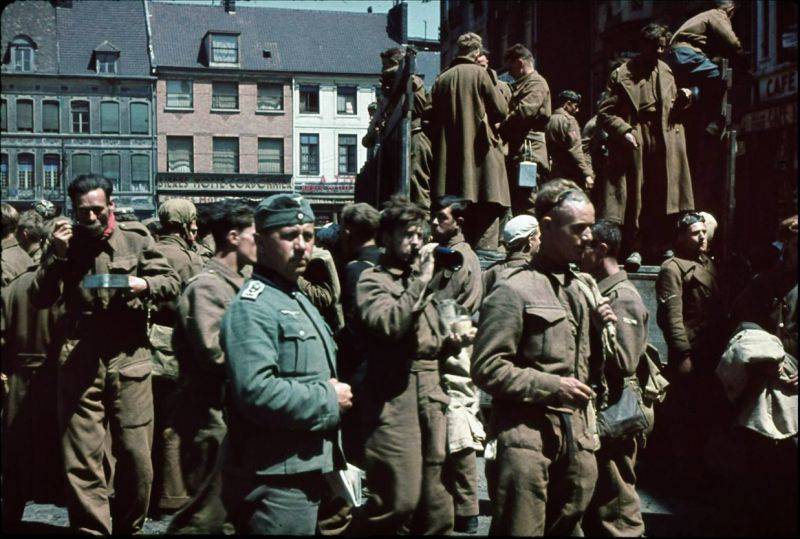
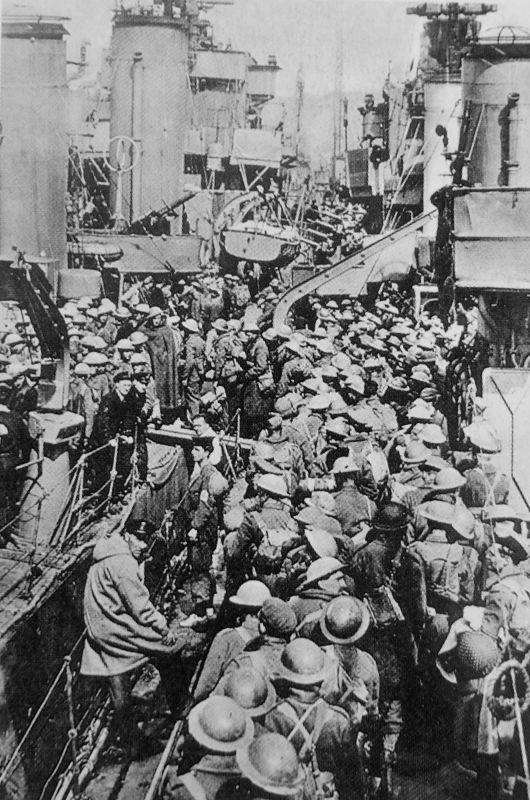
The British already on May 20 began to collect vessels for evacuation. For the Dunkirk operation, all available vessels of the military and merchant fleets were mobilized - about 700 British and about 250 French. Used hundreds of civilian vessels (fishing, passenger, pleasure yachts, small cargo ships, ferries, etc.), mostly small. They took people directly from the beaches and transported soldiers to larger ships and ships, or brought directly to Britain. Some shipowners themselves brought their vessels, others requisitioned them. In addition, the existing Dutch and Belgian vessels were used to evacuate.
Even before the official start of the Dunkirk operation, the British actively exported troops (rear, auxiliary units) and evacuated about 58 thousand people. May 26 was followed by an official order to evacuate the expeditionary army. The evacuation took place dispersed, under artillery fire and air strikes. In the port, they loaded on large ships and ships, on the beaches the soldiers built temporary berths from cars driven into the water, to which small vessels could approach. Some ships could be reached or swam in boats, boats, rafts or swimming.
The German Air Force actively bombarded the bridgehead, but failed to disrupt the evacuation. For several days the weather was bad, which hampered the actions of aviation. On the other hand, the British concentrated their aircraft to cover the evacuation. The British had airfields nearby, and their fighters constantly hung over Dunkirk, driving away the enemy.
Thus, the Hitlerite command made a major miscalculation, losing the opportunity to destroy the allied group in the Dunkirk region with the help of mobile units, when the enemy was not ready for defense and did not strengthen. Even before the start of the Dynamo operation, about 58 thousand people were evacuated. From May 26 to June 4, 1940, during the Dunkirk operation, about 338 thousand people were transported to the British Isles (including about 280 thousand British). This made it possible to save the cadre English army.
Allied losses were heavy. On May 31, about 35 French capitulated in Lille alone. About 40-50 thousand Frenchmen were captured in the Dunkirk area. In particular, about 15 thousand French soldiers covered the evacuation until the last moment. During the operation and transportation, about 2 thousand soldiers and sailors died or went missing. The Allies lost a large number of ships and ships - 224 British and about 60 French ships (including 6 British and 3 French destroyers). Some ships and ships were damaged. The British lost over 100 aircraft, the Germans - 140. The Allies lost almost the entire military equipment: over 2,4 thousand guns, tens of thousands of small arms, vehicles, hundreds of thousands of tons of ammunition, fuel, equipment and equipment. Almost the British army lost all its heavy weapons and vehicles.
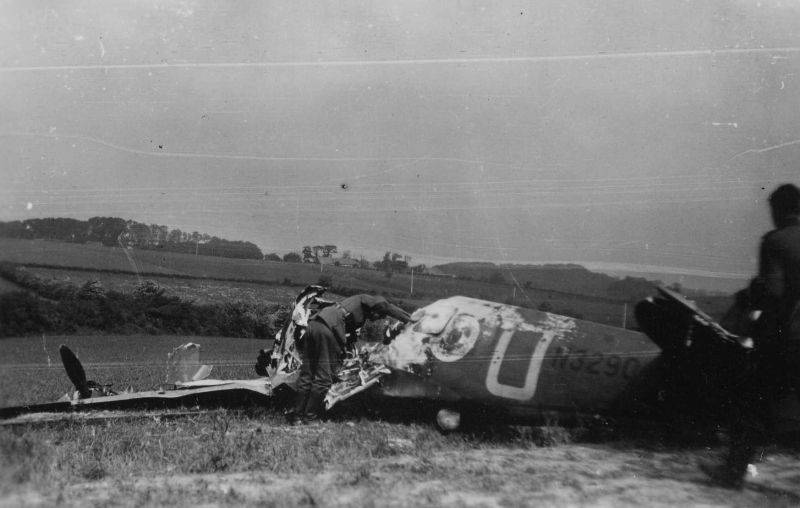
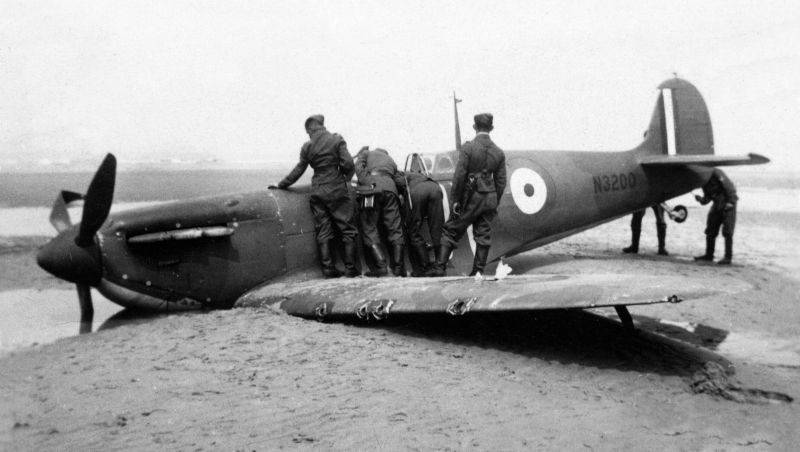
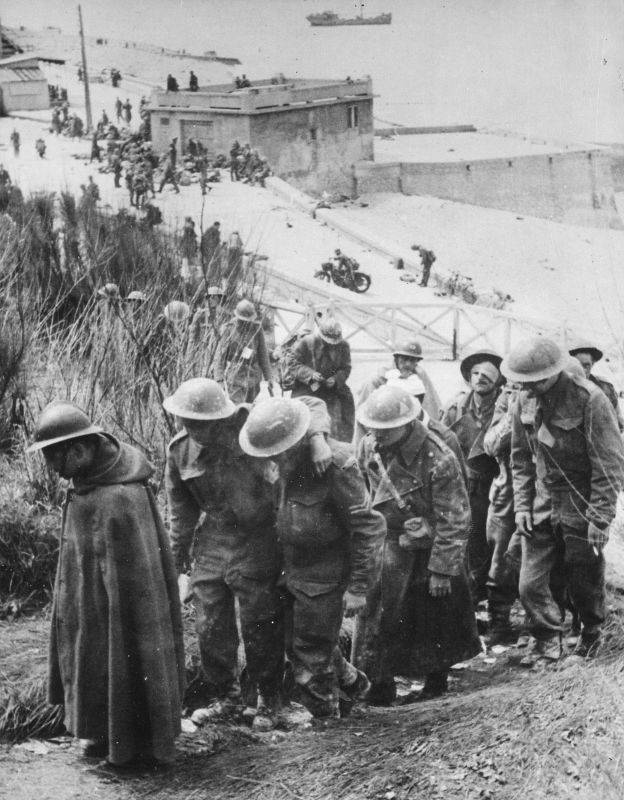
Information